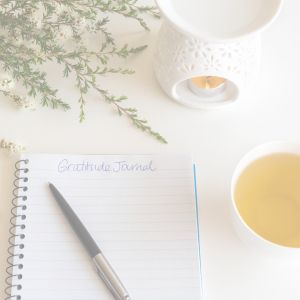Are you ready to take control of your life and start living the way you want to? Then these 11 small daily actions can help you get there. One thing I have learned in my own journey is that success lies in consistency, not perfection.
It’s common for us to spend much of our lives on autopilot, following daily habits that can complicate rather than simplify things.
While habits can be a great way to simplify decision-making and conserve mental energy, it’s important to be mindful of the habits we form. Some habits can actually make our lives more complicated and less enjoyable. Here are some examples:
- Checking our phones mindlessly throughout the day can interrupt our focus and make it harder to complete important tasks.
- Procrastination can lead to stress and overwhelm as deadlines approach and we have to rush to finish things.
- Overcommitting ourselves can leave us feeling exhausted and burnt out.
By taking the time to examine our habits and make intentional choices about which ones we want to keep and which ones we want to change, we can simplify our lives and make room for the things that truly matter.
Remember – Consistency is crucial for any successful transformation, no matter how big or small the changes may be.
ese
Work out your priorities and make them matter…daily
Sit down with a journal and ask yourself, ‘what are the five most essential things in your life at the moment?’ Write about the situations or people you would defend if needed? Then
take an honest look at what dominates your life. Where does your time or focus
go to daily? Sometimes, you might surprise yourself and realize what you
believe are your priorities are not what you make your priorities.
Write the priorities you choose to focus on in your journal every morning. Ask yourself, ‘how can I nurture and grow this priority today?’ ‘Are my daily actions and tasks supporting my chosen priorities?’ ‘How can I make that happen?’
If you find you are not following your priorities, you have a ready-made answer to the small changes you need to make to simplify your life. Otherwise, follow my suggestions to implement small changes to make your life more abundant and simplified.
Express gratitude daily
Practicing daily gratitude can lead to increased happiness. You can express gratitude through writing, texting, or verbally thanking someone. Aim to do this daily for maximum benefit.
Expressing gratitude is not only a great way to boost your own happiness, but it can also positively impact those around you. Here are some additional ways to cultivate gratitude in your daily life:
- Keep a gratitude journal where you write down three things you’re thankful for each day.
- Take a few moments each morning to mentally list things you’re grateful for.
- Send a thank-you note or text to someone who has made a positive impact in your life.
Remember, expressing gratitude doesn’t have to be complicated or time-consuming. Even small acts of appreciation can have a big impact on your overall well-being.

Pause and take a breath, regularly
Before each action, take a momentary break. Take a deep breath, hold, and release. Bring yourself back into your body, becoming conscious of what you are doing. Ask yourself, is the action you are about to take aligned with your priorities? Focusing on your breath gives you strength, energy, and purpose.
Write things down
Make lists; write things down. Most people overestimate their ability to get organised, remember, and follow through on tasks. The answer is to keep a pad with you and write down the information you need to remember. This action isn’t to overwhelm you… it’s to help you.
To do this, you must review your list regularly…at least daily. Determine at every review if the action or task is worth doing. Is it aligned with your priorities in life? Does it move you towards simplicity or away from it? If the answer is away, let it go. Figure out a way to release it from your life.
Notice the finer details of your environment
Have you ever wondered why a new experience or place ignites your excitement? It’s because you’re not on autopilot. You can replicate this. Take time to stop and focus on the finer details of the immediate environment and your actions at that exact moment.
Stop overcommitting
It’s important to remember that saying no doesn’t mean you are being selfish or unhelpful. In fact, it’s quite the opposite. By saying no to requests that don’t align with your priorities, you are actually being more intentional with your time and energy. Here are a few tips to help you practice saying no:
- Start small: If saying no feels uncomfortable or unfamiliar, start with small requests and work your way up to bigger ones.
- Be polite but firm: You don’t need to give a lengthy explanation for why you can’t accommodate a request. A simple “I’m sorry, but I won’t be able to do that” is enough.
- Offer an alternative: If you genuinely want to help but can’t commit to the request, offer an alternative solution or suggest someone else who may be able to assist.
- Remember your priorities: When faced with a request, take a moment to reflect on whether it aligns with your values and goals. If it doesn’t, it’s okay to say no.
By practicing saying no and being intentional with your commitments, you can reduce overcommitment and create more space for the things that truly matter to you.

Do something for yourself every day
You don’t have to be productive or on show 24/7. Give yourself time to recharge without interruptions. Do it because it feels good. You don’t have to put it on Facebook or Instagram for attention or praise. Just be with yourself because it is healthy for you.
Get rid of clutter
A big declutter is soul enlightening. However, spending 5 minutes every day, getting rid of the excess that builds up over time is a consistent daily practice in releasing what holds you back. You become stronger at letting go of what is not needed in your life.
Ditch multitasking
Focus on one task at a time. Please keep it simple. Finish the job if possible, then move onto the next. This action alone will be life-changing if done consistently.
Cultivate curiosity in your daily interactions
Being curious helps you to expand, learn, and love more. It enables you to refine your choices. It opens you up to new ways of being intentional with your life.
Stop comparing yourself.
Instead of constantly comparing yourself to others, it’s important to recognise that you have your own unique set of strengths, weaknesses, and desires. By embracing your individuality, you can tap into your own inner wisdom and start creating a life that truly aligns with
your values and aspirations. Here are some tips to help you craft your own experiences
and live a more fulfilling life:
- Identify your values: Take some time to reflect on what’s most important to you in life. Is it family, career success, personal growth, adventure, or something else entirely? Once you have a clear understanding of your values, you’ll be better equipped to make
decisions that align with them. - Set your own goals: Instead of chasing someone else’s definition of success, create your own goals that reflect your unique passions and aspirations. Whether it’s starting a business, traveling the world, or simply living a more meaningful life, set goals that excite and motivate you.
Remember, you are the only person who can truly define what a fulfilling life looks like for you. By letting go of the need to compare yourself to others, you can start creating a life that’s truly your own.

Building a life that reflects the one you want to live requires a collection of small changes in your daily routines. By focusing on your priorities, expressing gratitude, pausing regularly, writing things down, noticing finer details, stopping overcommitment, doing something for yourself every day, getting rid of clutter, ditching multitasking, cultivating curiosity, and stopping comparisons, you can simplify your life and become more intentional with your choices. Remember, success lies in consistency.
Implementing at least one thing every 21 days can cause a significant decrease in stress levels and increase in overall life enjoyment. Which one will you begin with?